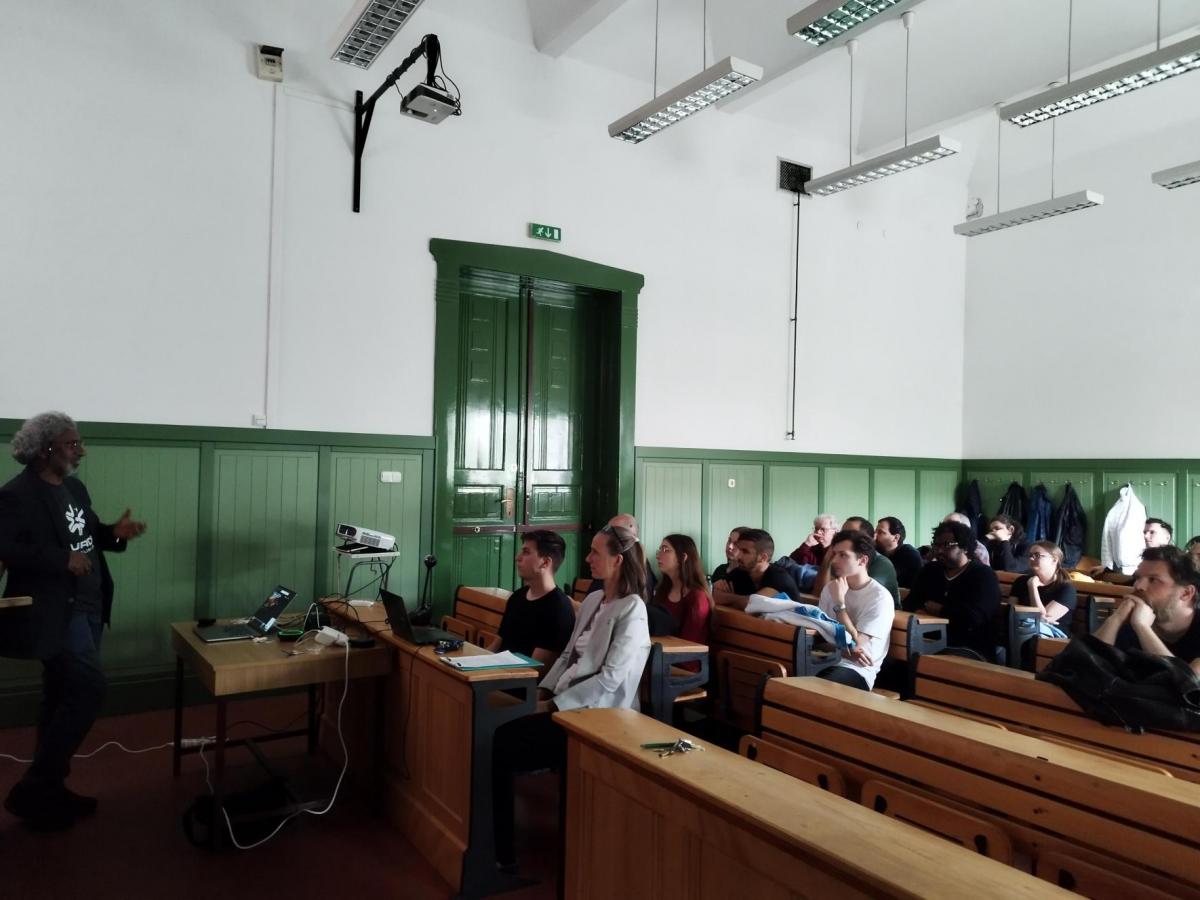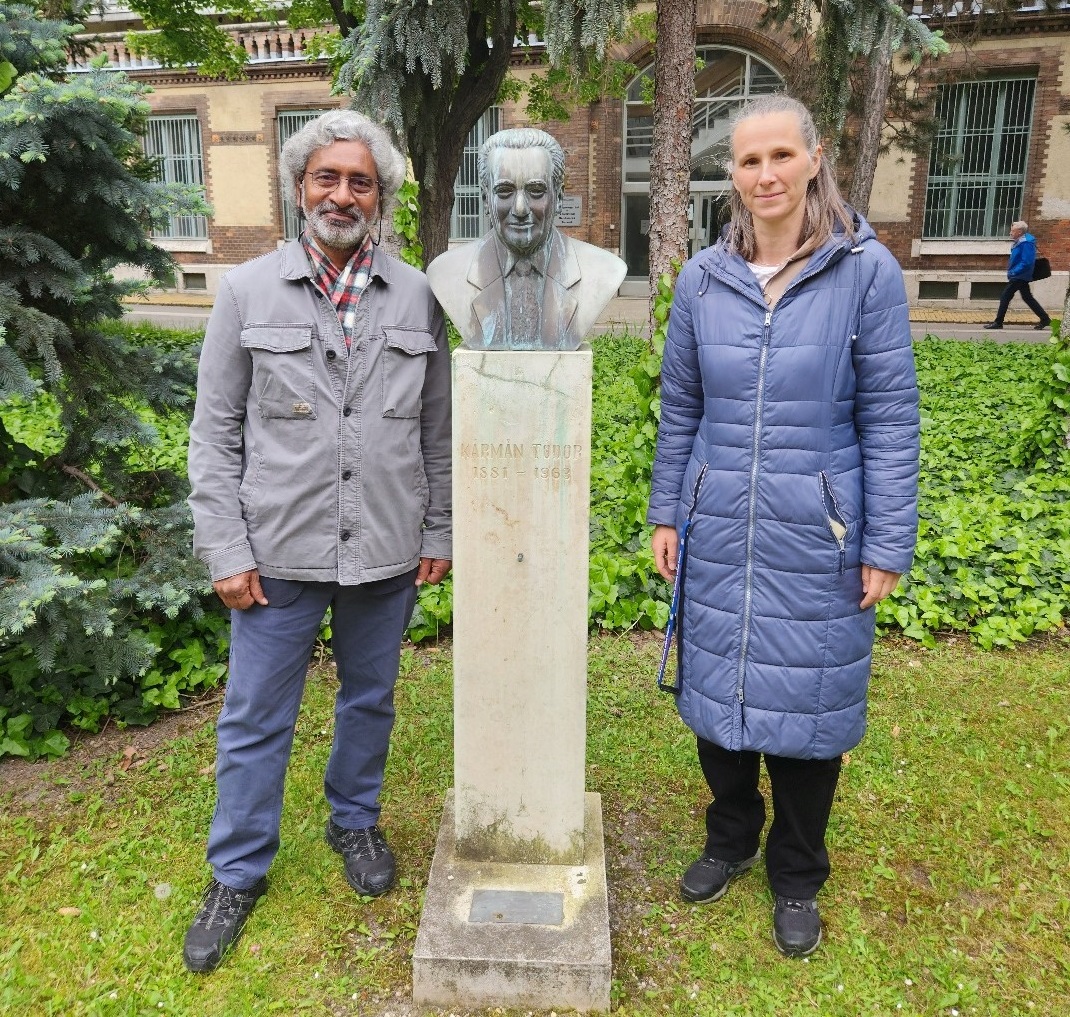News feed
Can Jupiter’s Moon Harbor life?
2024. 05. 02.The possibility of extraterrestrial life was the main topic of the guest lecture held by Dr. Murthy S. Gudipati from NASA’s Jet Propulsion Laboratory at BME.
On April 23rd, 2024 the Department of Photogrammetry and Geoinformatics hosted a special edition of the Detrekői Seminar Lecture Series organized by the IEEE GRSS Student Branch Chapter, featuring distinguished guest speaker Dr. Murthy S. Gudipati from the NASA's Jet Propulsion Laboratory, California.
Webcast: Click here to watch the recorded event


Presentation Overview:
Dr. Gudipati delivered an exciting talk titled "Europa Clipper Mission: Investigating Habitability of Europa, Jupiter’s Icy Moon." delving into JPL’s world leading planetary exploration and astrophysics.
The presentation commenced with an exploration of Jupiter’s moon Europa which has the potential to harbor life in our Solar System. He discussed the moon's abundant water resources and the presence of a subsurface liquid water ocean beneath its icy shell. With internal heat generated by gravitational variations and radiation from Jupiter's magnetosphere, Europa emerges as a promising candidate for extraterrestrial life.
A key highlight of the presentation was the Europa Clipper Mission designed and built at JPL, which aims to investigate Europa's habitability with anticipated science discoveries that might rewrite textbooks in the future. Launch is expected October 2024 and spacecraft is arriving to Jupiter in 2030. Dr. Gudipati elaborated on the mission's objectives, including the exploration of Europa's interior, surface composition. The seminar provided valuable insights into the cutting-edge research conducted at NASA's Jet Propulsion Laboratory and the potential implications for our understanding of our universe.
Following the presentation, the audience engaged in a dynamic question-and-answer session with the speaker. Question arise about what forms of life could exist in the universe? What are the critical or crucial things for life which leads to the more philosophical question how to search for something when we do not know what we are searching for? Other questions were about where do we have water in liquid in the solar system and what supports the idea that the metal core of Europa is solid and not fluidic? Thought-provoking inquiries were raised, showcasing the genuine interest and curiosity of the seminar attendees. Dr. Gudipati demonstrated his expertise by providing comprehensive and insightful responses to each question.
After his talk, Dr. Gudipati visited the Teodor von Karman statute on BME campus. Teodor von Karman obtained his degree in 1900’ at BME and was one of the founder of NASA JPL in California where his lifetime achievements are recognized and highly respected.

Dr. Gudipati's talk exemplified the commitment of the GRSS Student Branch Chapter to cutting-edge research in planetary exploration. Thanks to the US Embassy’s Science Fellowship Program supporting Dr. Gudipati’s visit to Hungary and the Rosztoczy Foundation enabling Dr. Kugler to meet Dr. Gudipati at JPL and invite him to give a talk at BME, Hungary.
KZS
